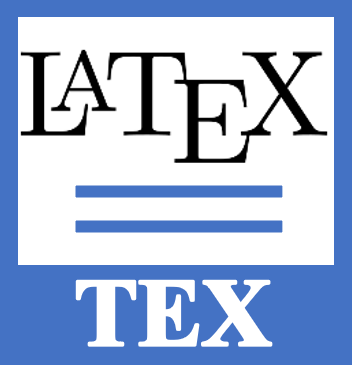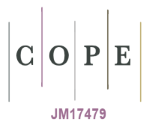Editorial Team
Editorial board by country/region: 40 editorial board members in 17 countries/regions
Bangladesh (1), Egypt (3), France (2), Iran (2), Iraq (13), Jordan (1), Libyan Arab Jamahiriya (1), Malaysia (1), Morocco (1), Oman (2), Saudi Arabia (2), Tunisia (2), Turkey (3), United Arab Emirates (1), United Kingdom (3), United States of America (1), Uzbekistan (1).
Gender diversity of editorial board members: (26) man, (14) woman
Editor-in-Chief (EIC)
Prof. Dr. Mohammed Y. Kamil
College of Science, Mustansiriyah University, Baghdad, Iraq.
Interests: Digital Image Processing; Computer Vision; Computer-Aided Diagnosis
Associate Editors
Biology
Asst. Prof. Dr. Israa M.S. AL-KadmyBranch of Biotechnology, Department of Biology, College of Science, Mustansiriyah University, Baghdad, Iraq. |
Asst. Prof. Dr. Leena Al-HassanBrighton and Sussex Medical School, Brighton, United Kingdom. |
Chemistry
Prof. Dr. Younis BaqiDepartment of Chemistry, College of Science, Sultan Qaboos University, Muscat, Oman. |
Asst. Prof. Dr. Youssra Al-HilalyChemistry Department, College of Science, Mustansiriyah University, Baghdad, Iraq. |
Computer Science
Asst. Prof. Dr. Mohammed Rashad BakerSoftware Department, College of Computer Science and Information Technology, University of Kirkuk, Kirkuk, Iraq. |
Asso. Prof. Dr. Selim BuyrukoğluDepartment of Computer Engineering, Çankırı Karatekin University, Cankiri, Turkey. |
Mathematics
Prof. Dr. Zakia HammouchEcole Normale Supérieure, Moulay Ismail University, Meknes, Morocco. |
Asst. Prof. Dr. Mohammed O. Al-AmrDepartment of Mathematics, College of Computer Science and Mathematics, University of Mosul, Mosul, Iraq. |
Physics
Prof. Dr. Mostafa Yuness Abdelfatah MostafaPhysics department, faculty of science, minia university, minia, Egypt. |
Asst. Prof. Dr. Raghad S. MohammedDepartment of Physics, College of Science, Mustansiriyah University, Iraq. |
Managing Editor
Prof. Dr. Ahmed Mutanabbi Abdula
Department of Chemistry, College of Science, Mustansiriyah University, Baghdad, Iraq.
Interests: Organic and Medicinal Chemistry
Editorial Board
Asso. Prof. Dr. Mehmet Yavuz
Necmettin Erbakan Üniversitesi, Meram, Turkey.
Interests: Mathematical modeling; Optimal and Adaptive Control; Biomathematics; Environmental Mathematics
Prof. Dr. Fahrul HUYOP
Universiti Teknologi Malaysia, Johor Bahru, Malaysia.
Interests: Enzymes; Halogen Compounds; Bacterial dehalogenases
Prof. Dr. Christophe Guyeux
Femto-St - Sciences et Technologies, UBFC, Besancon, France.
Interests: Bioinformatics; machine learning; Chaotic theory; optimization
Prof. Dr. Hajer Tounsi-Guermazi
Laboratory of Materials for Energy and Environment, and Modeling (LMEEM), Faculty of Sciences, University of Sfax, Tunisia.
Interests: Materials sciences; nanoparticles; photocatalysis
Prof. Dr. Sameh H. Youseif
Department of Microbial Genetic Resources, Agricultural Research Center (ARC), National Gene Bank, Giza, Egypt.
Interests: Microbiology, Plant-Microbe Interaction, Biotechnology, Microbial Genomics, Microbial metabolites, Antibiotic Resistance, Microbial formulation, Bioremediation
Prof. Dr. Mohamed Hédi BEDOUI
University of Monastir - Laboratory of Technologies and Medical Imagery, Monastir, Tunisia.
Interests: electronic and informatics systems
Dr. Alaa Mhawish
National Center for Meteorology, Jeddah, Saudi Arabia.
Interests: Remote sensing; Atmospheric aerosols
Prof. Dr. Hossain Milani Moghaddam
Department of Solid State Physics, Faculty of Basic Sciences, University of Mazandaran, Babolsar, Iran.
Interests: Nanostrucucture Physics; NanoElectronics; Molecular wires; Spintronics
Asst. Prof. Dr. Mohammed Naji Al-Kabi
Al Buraimi University College, Al Buraimi, Oman.
Interests: Big Data; Sentiment Analysis and Opinion Mining; Search Engines; Natural Language Processing; Information Retrieval; Software Engineering; Data Mining
Dr. Dominique Manchon
Laboratoire de Mathématiques Blaise Pascal, CNRS et Université Clermont-Auvergne, Aubière, France.
Interests: algèbres de Hopf combinatoires; geometric quantisation; Poisson structures; Feynman graphs
Prof. Dr. Mazin Ali A. Ali
Mustansiriyah University, Baghdad, Iraq.
Interests: Laser; Optics; Free Space Optics; Visible Light Communication; Optical Wireless Communications
Dr. Naseema Beegum
Research Center for Renewable Energy Mapping and Assessment, Abu Dhabi, United Arab Emirates.
Interests: Aerosol; Aerosol Property; Diffuse Solar Radiation
Prof. Dr. Abbas Maleki
Clinical Microbiology Research Center, Ilam University of Medical Sciences, Iran.
Interests: Toxin-Antitoxin Systems; Anti-Bacterial Agents; Molecular analysis; Molecular detection of Pathogenic agents
Prof. Dr. Jamoliddin Razzokov
School of Engineering, Akfa UniversityTashkent, Uzbekistan.
Interests: Biophysics; Biochemistry
Dr. Omar Younis Alani
School of Computing, Science, and Engineering, University of Salford, Manchester, United Kingdom.
Interests: Mobile Communications; Internet of Things; Precoding; Millimeter Waves; Antenna; Fiberoptic Cable
Dr. Mahmoud Bukar Maina
Sussex Neuroscience, School of Life Sciences, University of Sussex, United Kingdom.
Interests: Tau; Taupathies; Amyloid Beta; Induced Pluripotent Stem Cells
Asso. Prof. Dr. Ghada Abbady Elsayed Abbady
Assuit University, Asyut, EGYPT.
Interests: Material Science
Asst. Prof. Dr. Nazek AL-GALLAS
University of Hafr Al Batin, Hafar al Batin, Saudi Arabia.
Interests: Bacteriological water; Food control
Asst. Prof. Dr. Md. Nazmul Hasan
Lab Manager, North East Medical College and Hospital, Sylhet, Bangladesh.
Interests: Plant Biotechnology; Molecular Biology; Microbiology; Genomics; Proteomics and Bioinformatics
Prof. Dr. Nadia Hashim Al-Noor
Department of Mathematics, College of Science, Mustansiriyah University, Baghdad, Iraq.
Interests: Mathematical Statistics; Reliability Theory; Survey Sampling
Dr. Sarah Naji Aziz
Department of Biology, College of Science, Mustansiriyah University, Iraq.
Interests: Bacteriology; Bacterial Physiology; Molecular Biology; Antibiotic Resistance
Asso. Prof. Dr. Adem Tekerek
Gazi University, Ankara, Turkey.
Interests: Artificial Intelligence; Information Security; Smart Systems
Prof. Dr. Taghreed Hashim Al-Noor
University of Baghdad, Baghdad, Iraq.
Interests: Inorganic Chemistry; Pharmacology & Pharmacy Biochemistry
Prof. Dr. Ali M. Al-Salihi
Department of Atmospheric Sciences, College of Science, Mustansiriyah University, Iraq.
Interests: Atmospheric Science
Asst. Prof. Dr. Nameer El-Emam
Philadelphia University, Amman, Jordan.
Interests: Computer Simulation; Parallel Algorithms; Soft computing; Sound Processing; Steganography
Asst. Prof. Dr. Wanisa Mohammed
Sebha University, Sebha, Libyan Arab Jamahiriya.
Interests: Silver Nanoparticles; Green Synthesis; Biofabrication; Crystal Structure
Dr. Raheem Al Aameri
Dr. Duha Abdul Kareem kadhim
Updated May 01, 2025

















